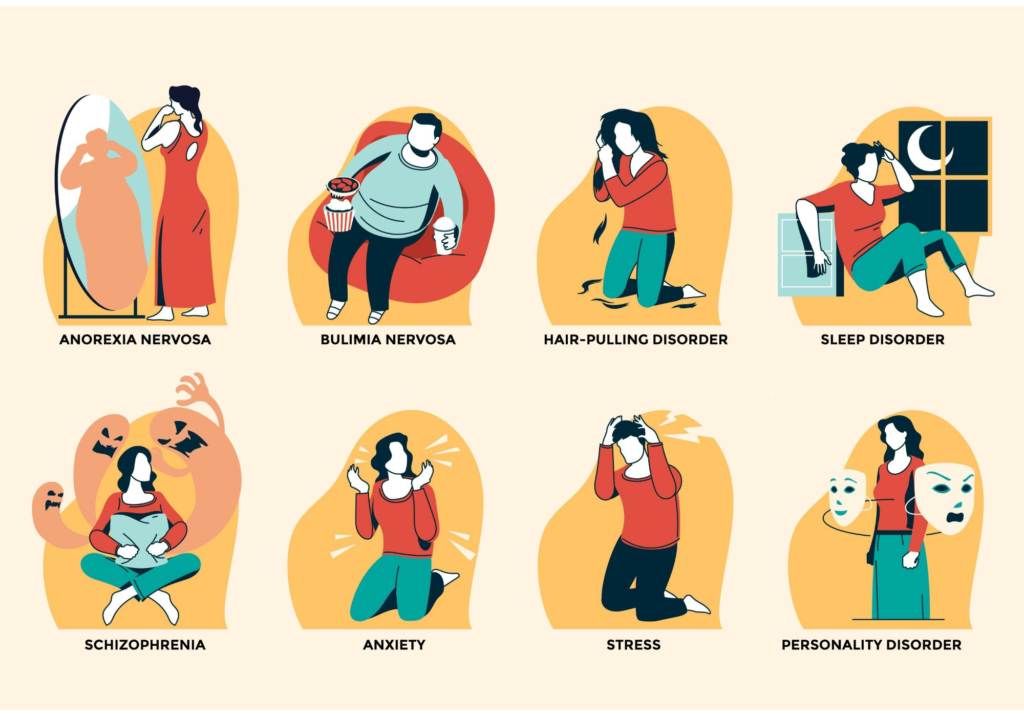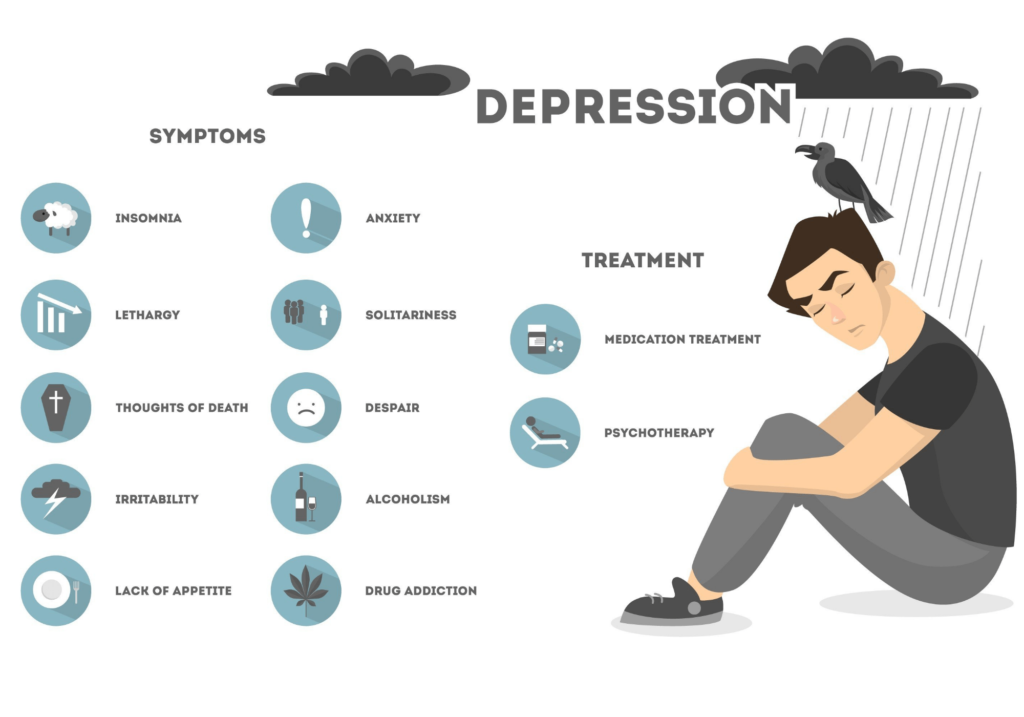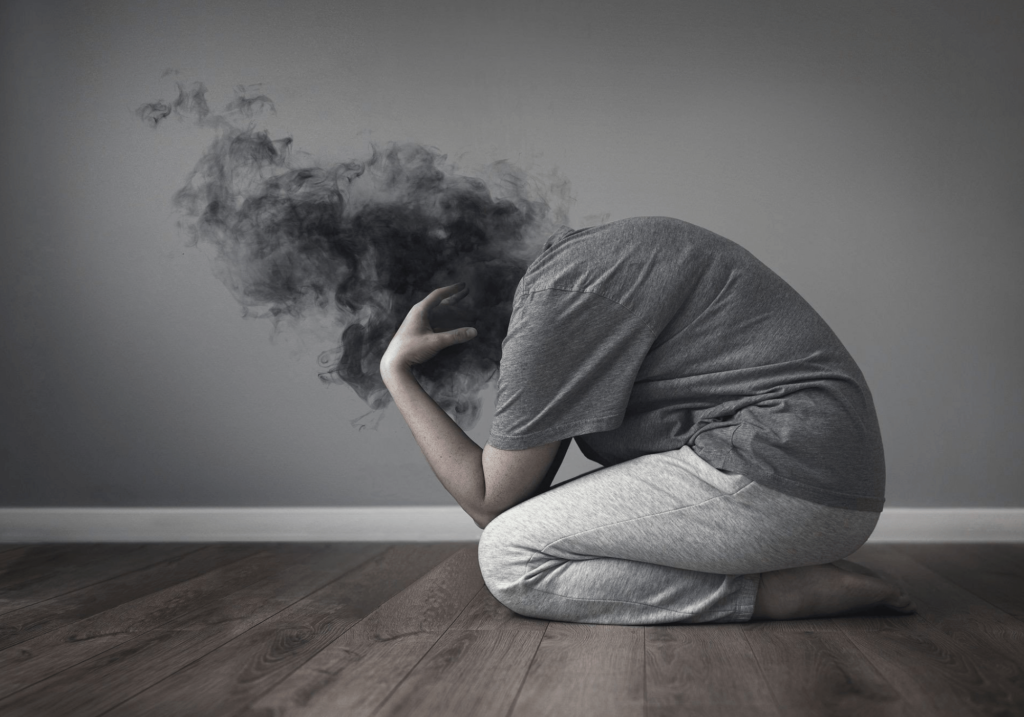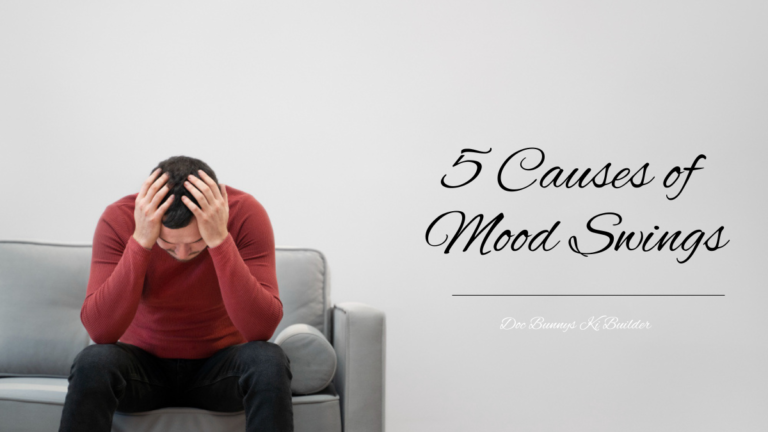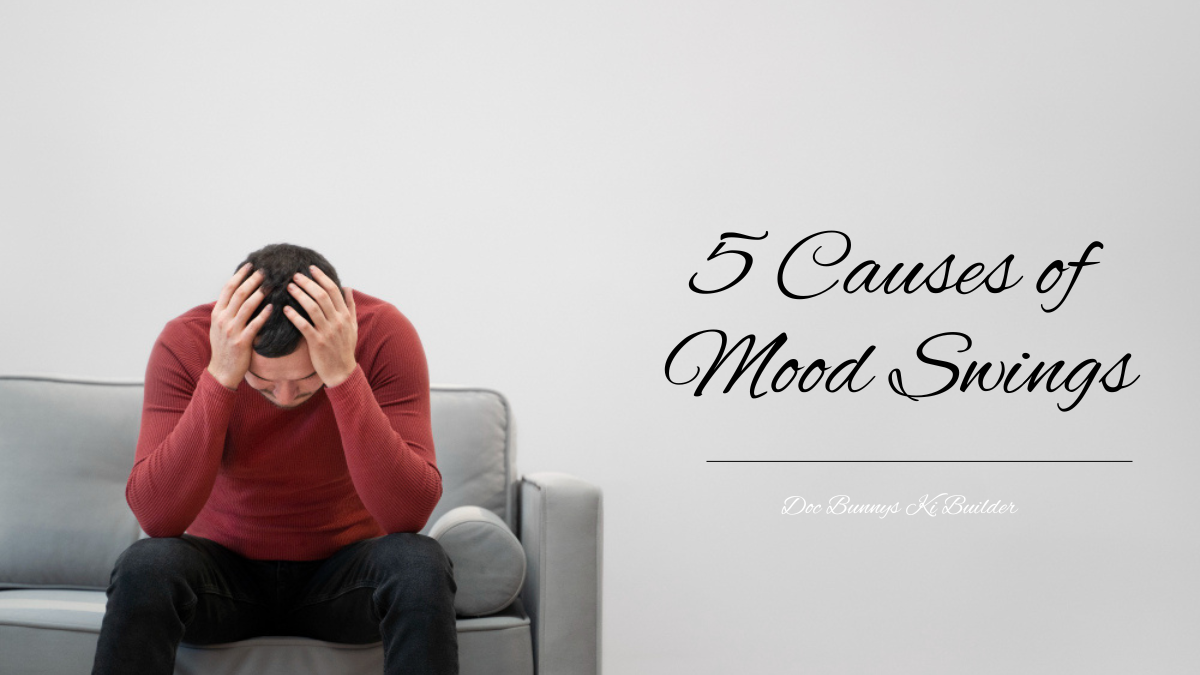In the world of mental health, there’s something important we need to talk about. It’s called high functioning depression. This kind of depression is tricky because it doesn’t always look like what we expect. However, people with such depression might seem perfectly okay on the outside. They go about their daily lives smiling, even though they’re dealing with sadness and anxiety.
In This Article
ToggleThis guide will examine high-functioning depression in depth. We will uncover what it is like to live with it, discuss the different types, and explore the signs that often go unnoticed. We will also see if persistent depressive disorder, another name for high depression, affects men and women differently. Similarly, we will also look into the fact that such depression can be dangerous, even though it doesn’t seem that way.
Moreover, it is not just about individuals. We will also see how HF depression can affect relationships and work. And we will give you tips on how to deal with it, including self-help ideas, medications, and therapy.
Furthermore, we have also gathered some helpful resources like books and online tests. And we will talk about a sad topic: thoughts of hurting oneself and how to get help.By the end of this guide, you will better understand HF depression. You will know how it can impact people’s lives and what you can do about it. Remember, understanding is the first step toward feeling better, and you are not alone on this journey.
What Does High-Functioning Depression Look Like?
At first glance, individuals dealing with it may appear perfectly fine, going about their daily routines with a smile. However, such depression can be deceptive for many of us. Additionally, such depression is often called smiling depression, a clinical depression. What sets it apart from other types of depression is that individuals with persistent depressive disorder effectively maintain their daily routines and responsibilities. These people often conceal their emotional pain behind a facade of normalcy. However, this outward appearance of functionality can make it challenging for others. Individuals must also realize that they are suffering from depression.
Types Of High-Functioning Depression
High functioning depression, like other types of depression, can show in various ways.
Here Are Some Common Types And Variations Of Signs Of High-Functioning Depression:
Atypical Depression
Individuals with atypical depression often experience mood reactivity, meaning their mood can temporarily lift in response to positive events. However, they may also have symptoms like:
- Increased appetite or weight gain
- Excessive sleepiness,
- Heavy feeling in their limbs
Dysthymic Disorder (Persistent Depressive Disorder)
This type of depression is characterized by chronic, long-term depressive symptoms lasting at least two years. The signs might not be as bad as they are in profound depression. They can, however, last for a long time and disrupt many people’s everyday lives.
Seasonal Affective Disorder (SAD)
SAD is a kind of depression that happens mostly during specified seasons, most notably during the winter when there is less natural sunshine. It can cause depressive symptoms such as:
- low energy
- changes in sleep patterns
- feelings of hopelessness
Double Depression
This refers to a situation where someone with persistent depressive disorder (dysthymia) experiences. People suffering from severe depression experience significant depressive episodes and continuous depressive symptoms. However, it causes a more severe and long-lasting kind of depression.
High-Functioning Bipolar Depression
Some individuals with bipolar disorder, particularly bipolar II, experience high-functioning depressive episodes between periods of hypomania. However, during these depressive phases, they may maintain their daily routines. However, they deal things with intense sadness and other depressive symptoms.
Atypical High-Functioning Depression
This category includes individuals with some atypical features not commonly seen in depression.
However, They Might Have:
- Mood swings
- Irritability,
- Brief episodes of increased energy, known as “mixed” states.
Furthermore, it is essential to note that these types of high-functioning depression can overlap, and individuals may not neatly fit into one category. However, the key is to recognize the unique combination of symptoms and experiences that each person may have. Regardless of the subtype, seeking aid and support from mental health specialists is critical.
High-Functioning Depression Symptoms
This kind of depression shares many common symptoms with other forms of depression. However, it is distinguished by the ability to maintain daily functioning despite experiencing these symptoms. Typical symptoms of high-functioning depression include the following.
Persistent Sadness
Individuals with such depression often experience an enduring sense of sadness or emptiness, even when they appear happy on the outside.
Fatigue
They may feel physically and mentally exhausted despite going through daily activities as if they are constantly running on empty.
Anxiety
Anxiety symptoms, including excessive worrying, restlessness, and unease, frequently accompany this depression.
Changes in Sleep Patterns
Insomnia or hypersomnia (sleeping excessively) can be symptoms of high-functioning depression. Some individuals may struggle to fall asleep. However, others may sleep excessively but still feel tired.
Loss of Interest
People frequently lose interest in pursuits they formerly found enjoyable when depressed.
Eventually, this could include hobbies, socializing, or pursuing personal goals.
Difficulty Concentrating
Common symptoms include cognitive impairments, such as trouble focusing, making judgments, or remembering things.
Irritability
They may become irritable or easily frustrated, even over minor issues, due to the emotional turmoil they are experiencing internally.
Physical Complaints
Complaints of physical symptoms like headaches, digestive problems, and muscle aches are common.
Perfectionism
Some individuals may engage in perfectionistic behaviors, setting impossibly high standards for themselves and then feeling like they constantly fall short.
Feelings of Guilt and Self-Criticism
Self-blame and excessive self-criticism are prevalent. Such individuals often feel like they need to do more.
Isolation
Individuals suffering from severe depression may retreat from social contact despite keeping up appearances. They do, however, distance themselves from friends and loved ones.
Masking Emotions
They become skilled at hiding their true feelings, often because they fear burdening others or appearing weak.
Correlation With Mental Disorders
High-functioning depression is just one of many mental health conditions that people can experience. However, distinguishing it from other conditions is critical in order to give proper therapy and support.
High Functioning Autism and Depression
High-functioning autism (also known as Autism Spectrum Disorder or ASD) and high-functioning depression can sometimes co-occur. Individuals with both conditions face unique challenges in managing their emotional well-being.
High Functioning Depression and Anxiety
Anxiety disorders are frequently associated with high-functioning depression. These overlapping conditions can intensify feelings of sadness, worry, and unease, making treatment strategies more complex.
High Functioning Depression vs. Bipolar
While high-functioning depression primarily involves prolonged periods of low mood, bipolar disorder consists of mood swings, including depressive and manic episodes. Recognizing these distinctions is critical for proper diagnosis and therapy.
High Functioning Depression vs Major Depression Disorder
Major depressive disorder (MDD) is characterized by more severe and persistent depressive symptoms than high-functioning depression. Understanding the differences between these two illnesses is essential for customizing treatment regimens.
High Functioning Depression vs ADHD
Attention-deficit/hyperactivity disorder (ADHD) and high-functioning depression can share symptoms like difficulty concentrating. However, they have distinctive characteristics and need for various management strategies.
High Functioning Depression vs. Dysthymia
When depression symptoms are persistent and mild for at least two years, it is called dysthymia or persistent depressive disorder. High-functioning depression can resemble dysthymia in some ways, but the intensity and impact on daily life may differ. Recognizing these differences aids in diagnosis and treatment planning.
Suicide ideation with high functioning depression
Like other forms of depression, individuals with high depression experience suicidal thoughts. However, these suicidal thoughts are distressing symptoms that can affect anyone struggling with depression, even though such individuals appear to be functioning on the outside.
Moreover, people with high depression are not immune to such thoughts. The pressure to maintain a facade of normalcy can sometimes increase the creativity of suicide. However, mental health professionals, therapists, and crisis hotlines are available to provide support, guidance, and intervention for individuals dealing with high-functioning depression and suicidal thoughts.
The Ratio Of High Functioning Depression In Male And Female
It might be challenging to pinpoint the precise gender difference in high-functioning depression. However, it is because of differences in how individuals express and report their symptoms, societal expectations, and cultural influences.
However, Some General Patterns And Research Findings Provide Insights:
Higher Prevalence in Females
Mindfulness and meditation can help you manage depression by enhancing emotional control and lowering stress. This may be partly attributed to gender differences in how depression is experienced and reported.
Underreporting in Males
Males may be less likely to seek help or report symptoms of depression, including. It is majorly because of societal expectations about masculinity and emotional expression. This can result in underdiagnosis in men.
Varied Presentation
Depression can manifest differently in males and females. Males might mask their symptoms by engaging in high-risk behaviours or turning to substance use, making it less noticeable.
Cultural Factors
Cultural factors and social norms can play a significant role in presenting and reporting high-functioning depression. However, different cultural expectations may affect how men and women express their emotional distress.
How Do You Deal With High-Functioning Depression?
Dealing with high-functioning depression involves a multifaceted approach that can include self-treatment strategies and, in some cases, medication. Here’s a summary of both approaches:
Therapy and counselling
Consider cognitive-behavioural treatment (CBT) or interpersonal therapy (IPT) with a certified therapist. Therapy can assist you in exploring and addressing the underlying reasons of your depression and developing coping strategies.
Mindfulness and Meditation
Mindfulness and meditation can help you manage depression by improving emotional control and decreasing stress.
Self-Treatment Strategies
Exercise
Regular exercise has a good effect on mood and general mental health. Try to engage in at least 30 minutes of moderate activity most days of the week.
Healthy Lifestyle
Pay attention to your diet, get adequate sleep, and limit alcohol and caffeine use. A balanced, healthy lifestyle can help with emotional wellness.
Support Network
Reach out to friends and family for emotional support. Share your struggles and tell them how they can assist you during difficult times.
Stress Management
Learn anger management methods like progressive muscle relaxation, deep breathing, or journaling to help you cope with daily challenges.
Set Realistic Goals
Divide things into smaller, more doable steps and create attainable targets. This will help you avoid feeling overwhelmed.
Medication
If your high-functioning depression is severe or not improving with self-help strategies and therapy, consult a psychiatrist. They can evaluate your condition and discuss medication options.
Antidepressants
Depression is a common illness treated with medications such as selective serotonin reuptake inhibitors (SSRIs) or serotonin-norepinephrine reuptake inhibitors (SNRIs). They can reduce symptoms and assist with mood regulation.
Regular Monitoring
If you start taking medication, you must schedule routine follow-up consultations with your psychiatrist to track your development and make any necessary corrections.
Combination Therapy
Sometimes the best method for treating high-functioning depression is a mix of counseling and medication.
Never hesitate to get treatment immediately if you have suicidal or self-harming thoughts. Your well-being is a priority, and support is available.
FAQs
What Is High-Functioning Mental Illness?
The high-functioning disorder is a mental illness. It refers to a condition where individuals can maintain their daily routine despite experiencing significant mental health challenges.
Is High-Functioning Depression Natural?
Yes, such depression is natural. It is a valid form of clinical depression where individuals outwardly appear well-adjusted but battle persistent depressive symptoms internally.
What Is Functionally Depressed?
“Functionally depressed” is a term used to describe individuals who, despite experiencing depression, can still function in their daily lives.
Do I Have High-Functioning Depression?
If you have high-functioning depression, immediately see a mental health professional for an appropriate diagnosis.
What Is A Higher Level Of Depression?
A “higher level of depression” isn’t a clinical term. Depression severity varies among individuals, ranging from mild to severe. The word you might be looking for is “severe depression,” which involves intense and debilitating symptoms.
What Does High Depression Lead To?
Untreated high depression can lead to various adverse outcomes, including:
- Impaired quality of life
- Strained relationships
- Decreased work performance
- The risk of getting more severe types of depression is increased.



